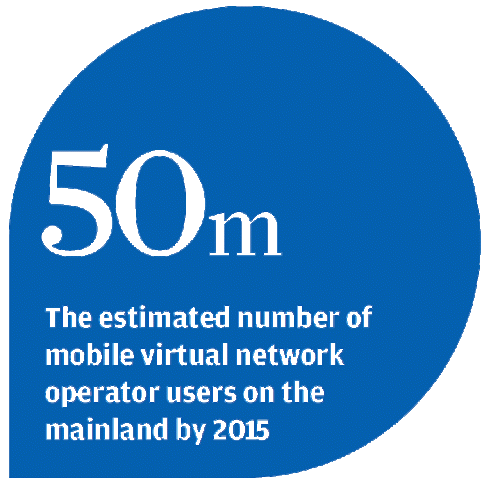
Alibaba, Tencent take rivalry to mobile network services
E-commerce giant follows rival's move to launch 3G data and voice services through a subsidiary
The proverbial battle for the hearts and minds of mainland consumers between Alibaba and Tencent will soon play out in a vast new market for the two companies: mobile network services.

The Ministry of Industry and Information Technology issued mobile virtual network operator licences in December and January that allowed mainland private companies to expand competition in domestic mobile services. Each operator will offer service in specific locations under its brand name, while leasing network capacity from one or all three incumbent operators - China Mobile, China Unicom and China Telecom.
Ricky Lai, an analyst at Guotai Junan International, predicted these "bundled [mobile virtual network operator services" from Alibaba and Tencent would also feature their respective mobile-messaging platforms.
Last month, Alibaba paid US$215 million for a stake in US-based messaging service Tango. It is expected to compete against Tencent's WeChat, which operates as Weixin on the mainland.
A report from the technology ministry's China Academy of Telecommunication Research forecast the number of mobile virtual network operator subscribers would reach 50 million on the mainland by 2015.

